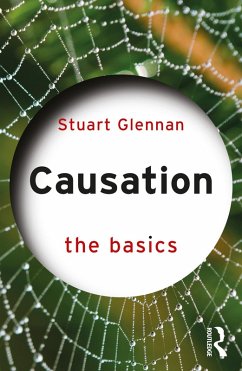
Philosophy of Sex and Love (eBook, PDF)
An Opinionated Introduction
Versandkostenfrei!
Sofort per Download lieferbar
37,95 €
inkl. MwSt.
Weitere Ausgaben:

PAYBACK Punkte
19 °P sammeln!
Writing for non-specialists and students as well as for fellow philosophers, this book explores some basic issues surrounding sex and love in today's world, among them consent, objectification, non-monogamy, racial stereotyping, and the need to reconcile contemporary expectations about gender equality with our beliefs about how love works. Author Patricia Marino argues that we cannot fully understand these issues by focusing only on individual desires and choices. Instead, we need to examine the social contexts within which choices are made and acquire their meanings. That perspective, she arg...
Writing for non-specialists and students as well as for fellow philosophers, this book explores some basic issues surrounding sex and love in today's world, among them consent, objectification, non-monogamy, racial stereotyping, and the need to reconcile contemporary expectations about gender equality with our beliefs about how love works. Author Patricia Marino argues that we cannot fully understand these issues by focusing only on individual desires and choices. Instead, we need to examine the social contexts within which choices are made and acquire their meanings. That perspective, she argues, is especially needed today, when the values of individualism, self-expression, and self-interest permeate our lives. Marino asks how we can fit these values, which govern so many areas of contemporary life, with the generosity, caring, and selflessness we expect in love and sex.
Key Features of Philosophy of Sex and Love: An Opinionated Introduction
Key Features of Philosophy of Sex and Love: An Opinionated Introduction
- Offers a contemporary, problems-based approach to the subject, helping readers better understand and address current issues and controversial questions
- Includes coverage of sex and love as they intersect with topics like disability, race, medicine, and economics
- Considers not only the ethical, but also the broadly social and political dimensions of sex and love
- Includes a helpful introduction and conclusion in each chapter and is written throughout in a clear and straightforward style, with examples and signposts to help guide the student and general reader
- A comprehensive and up-to-date bibliography provides a valuable tool for anyone's further research
Dieser Download kann aus rechtlichen Gründen nur mit Rechnungsadresse in A, B, BG, CY, CZ, D, DK, EW, E, FIN, F, GR, HR, H, IRL, I, LT, L, LR, M, NL, PL, P, R, S, SLO, SK ausgeliefert werden.













